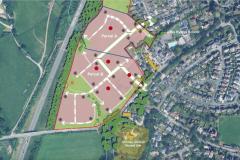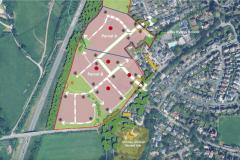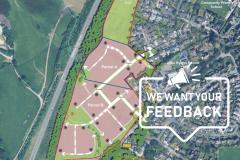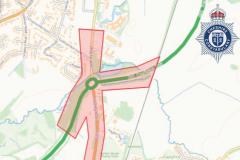
Remember the financial collapse of 2009 when David Cameron declared: "We are all in this together which is why we'll freeze public sector pay for all but the one million lowest" and, as it turned out, Members of Parliament who were milking their expenses for every home they could 'flip.
Following the subsequent clampdown on expenses the House of Commons appointed their own 'independent' salary watchdog (IPSA) which, unsurprisingly, determined members should receive a ten per cent pay rise while public sector pay remained frozen at one per cent.
Just a few months later MP's were rewarded with a further 1.3 per cent increase. UNISON called it 'appalling hypocrisy' a view echoed throughout the land. It made not one jot of difference.
Ofgem, the publicly funded energy watchdog, went one better giving the 'rising global price of energy' as the green light of approval for utility companies to make record profits but remained strangely silent when those global energy prices collapsed leaving cash-strapped consumers asking exactly who Ofgem represented.
Many local communities in Cheshire asked the same question when large housing developments were forced upon them under the guise of 'affordable homes'. Only to discover developers had no intention of building such houses.
Residents got shafted and those families desperate to own their own home remained as far from realising their dream as they had ever been. Who was fighting their cause?
Most people understood the need for controlled immigration but became appalled at the total lack of any sustainable policy. Many backed Mr Cameron when he promised to reduce annual net immigration to 'below 100,000' then watched in disbelief as it climbed to 330,000 requiring a new city the size of Bristol every 18 months.
Who spoke for those communities struggling to cope with the consequences?
Like thousands of others I was a huge Tony Blair supporter in 1997. I thought him to be a man of the people and he was, as long as those people agreed with him.
The two million who marched in protest at the proposed 'war' with Iraq were summarily dismissed in a blizzard of lies and spin. We now know the disastrous consequences of that monumental blunder and the Pandora's Box of terrorism and genocide it released.
Mr Blair simply did not listen, or care to listen, to the views of the people he was elected to represent. Now the world must pay the price.
Only recently Kenneth Clarke stated that MP's should ignore referendum results as he has never approved of them summing up the pompous, arrogant attitude of the political elite who view public opinion with such utter contempt.
Given the current political turmoil it's impossible to see exactly where we are heading but of one thing I am certain:
The peasants are revolting.
The views and opinions expressed in this column are those of the author and do not necessarily represent those of alderleyedge.com.









Comments
Here's what readers have had to say so far. Why not add your thoughts below.
He's summed up the state of politics in this country.
How revolting are these peasants ? ... do we live next door to one ?
Maybe Mother Theresa will be like a breath of fresh air, or maybe not ?
Now 51.7% of about 75% of the population has decided to jump off a cliff without seeing what's at the bottom. Intriguingly, they want me to jump with them without looking, telling me it's my responsibility to join with them in making it work. Like the man jumping off a skyscraper for a few seconds you can say "so far so good". Excuse me if I decide I would rather stay on the high ground.
The recent Referendum highlighted not just the arrogance of the political elite as indicated by Vic Barlow above, but also that of the leftist media who seem incapable of accepting that anyone, at least anyone with half an ounce of intelligence, could possibly come to a conclusion different from their own.
I do not have the original, but I saw a report of a comment attributed to the Financial Times following the recent Referendum which basically heaped abuse on the majority of the population who actually bothered to exercise their democratic right to vote by claiming they belonged to a post-fact generation who were turning anti-intellectualism into bigotry!
Whereas in the case of the Referendum, I am quite happy to be called the names used by Vic such as ‘peasant’ – and even ‘revolting’ – what I do strongly object to, and would have done so even had the vote gone the opposite way, is to be called a ‘racist’ or ‘bigot’ or ‘anti-intellectual’ simply because I attended university prior to ‘how-to-think-for-yourself’ being removed from the syllabus and managed to come to a conclusion different to that on ‘social media’ or the Guardian.
As for the comments above by Bob Bracegirdle, virtually all the so-called positive achievements he cites for ‘Parliamentary democracy’ are either 200 years old or extremely emotive – and, at least for non-Guardian readers, not necessarily completely ‘right’ as claimed. A far more recent example is cited in Vic Barlow’s article: namely that of Tony Blair taking Britain to war in Iraq.
Bob, like Kenneth Clarke also cited by Vic, seems to have a problem with ‘true’ democracy in objecting to going along with 51.9% (not 51.7% as stated in his comment) of those who voted! Furthermore, the fact that 27.8% of the population couldn’t be bothered to vote is irrelevant – at least they had the opportunity to do so. Likewise, the implied argument that had all these people actually voted, they would somehow have changed the result is one without any basis of fact.
Finally, it is very dangerous for people, as per Bob's comment above, to be claiming the ‘high ground’ following the Referendum result since it smacks of all the elitism and arrogance of the political elite and leftist media. I, for one, saw potential problems with both sides of the debate. So, if analogies are to be drawn of ‘high ground’ and ‘jumping off cliffs’, I would propose that the ‘cliff’ analogy should at least be changed to that of a ‘ridge’ whereby rather than jumping off one side, you could just as easily be pushed off the other side of the ridge and never be given the chance to participate in a truly democratic election again.
My response was prompted largely on two fallacies in the comment by Bob Bracegirdle: firstly his attempt to re-define ‘democracy’ in a narrow way (i.e. ‘Parliamentary democracy’) designed to support his argument; and, secondly, his raising of the illogical argument about majorities and proportions of the population – an argument apparently popular with the leftist youth in London who were equally upset and took to the streets when the last General Election delivered a result they didn’t like.
Whereas you are not using quite the same words, the reality is that your concept of a second Referendum is the same as Bob’s first fallacy. Effectively, the basis of your question is invalid since you are also re-defining ‘democracy’ to mean something I do not believe to be valid.
Let me elaborate further.
For better or for worse, the voting system in this country for Parliament is not compulsory and is first-past-the-post. So, at the last General Election, the Conservatives were elected with a majority of MPs in Parliament and hence given the right to govern for the next five years. That, to me, is democracy whereby we elect the people to govern us and, if we don’t like them (as I have experienced for approximately half my voting life), we have the chance to vote them out at the next election.
Having been elected with an absolute majority, the Conservatives were thus able to implement one of the basic policies in their manifesto, namely the In-Out Referendum. The ‘rules’ for that were debated and decided upon (‘Parliamentary democracy’ if you like) and the Referendum was held. Those ‘rules’ stated that the result would be determined on whether ‘Leave’ or ‘Remain’ received more votes. The democratic (using my definition of the word) result of that Referendum was to leave the EU.
The ‘problems’ this created are numerous, but let me deal with just two which affect your concept. The Conservative Government, because they basically didn’t believe in the Referendum (other than, I suggest, as a means to stop UKIP), failed to make provision for one of the two possible results of it, namely Leave, and hence ‘Parliamentary democracy’ also failed. Then, possibly because our ‘ruling elite’ also have a tendency, once elected, to ignore the views of their electorate, we were also subjected to a campaign which, in your words, was based on “speculation, fear and misinformation”. I should perhaps add, tongue-in-cheek, that the Leave campaign was little better!
So, my belief is that the democratic process should now proceed whereby this Government - who were elected to hold the Referendum and also to govern for five years - should be allowed to complete their remit from what already amounts to two democratic results.
For what it’s worth, if some of the news items are to be believed, ‘Brexit’ could take the balance of this Parliament anyway and so we may even get the scenario you suggest. Furthermore, although at the moment it seems far less likely, there may even be a credible opposition in place by then.
Give it say... three weeks and then do it all over again?
I'm entirely certain that a re-run would have truly sorted anything out.
It's a little worrying that 27.8% didn't vote.
By degrees, this will be a mixture of people:
* those who couldn't be bothered (there are always some);
* those who feel disengaged - that no-one listens;
* those who are too stupid (I don't make any apologies for saying so);
* those who simply couldn't bear the responsibility of voting;
* those who simply couldn't decide;
* those who voted against their own original intention, as a mischief vote - just to see what would happen.
This isn't like a general election where we can change a government after 5 years or so: this is more permanent. Or maybe once in a generation.
For my part, I voted Remain, but really only decided on that morning. I couldn't believe the rubbish we were being fed by the Out campaign; equally, I didn't really want the UK to remain as part of a club which is in desperate need of reform.
I was hoping that a near miss Remain visctory would make the EU sit up and take notice. The arrogance of people like Juncker isn't heartening - altho' he is only one of a very few in a real position of power who thinks like he does.
alas are you perhaps coming across as 'a bad loser'?
Had the vote gone the other way and the disappointed 'leavers' been complaining and demanding a re-vote, might you even now be calling them undemocratic whingers?
As to 'rubbish', did not both sides pour it out by the bucketful? After all, they were politicians!
Juncker et all listen to us? Don't hold your breath on that one?
As someone remarked recently in a national newspaper; along the lines of, 'in a year or two, we may be sitting comfortably watching the 27 fighting over who gets into the lifeboat, as the E.U. implodes!